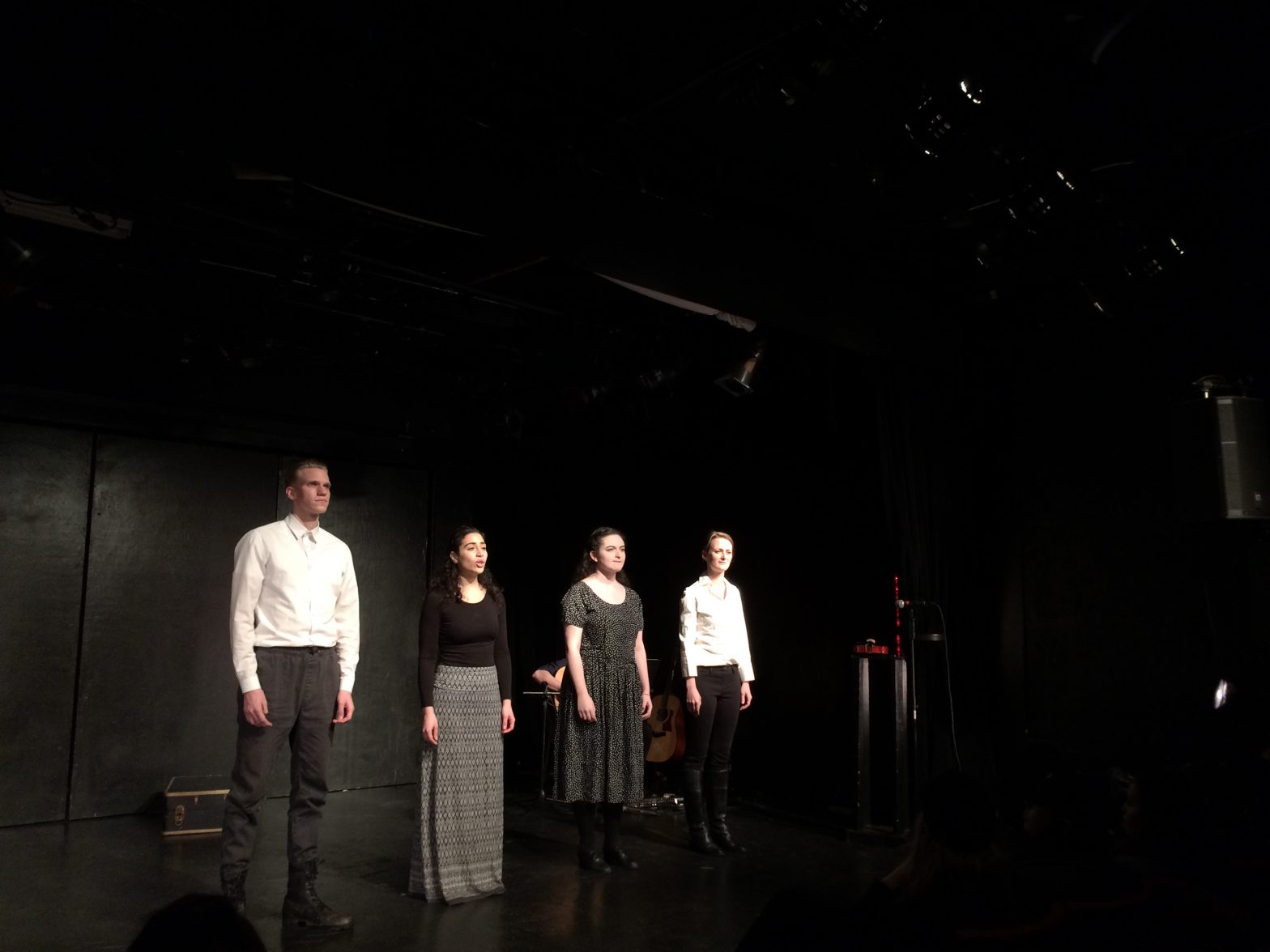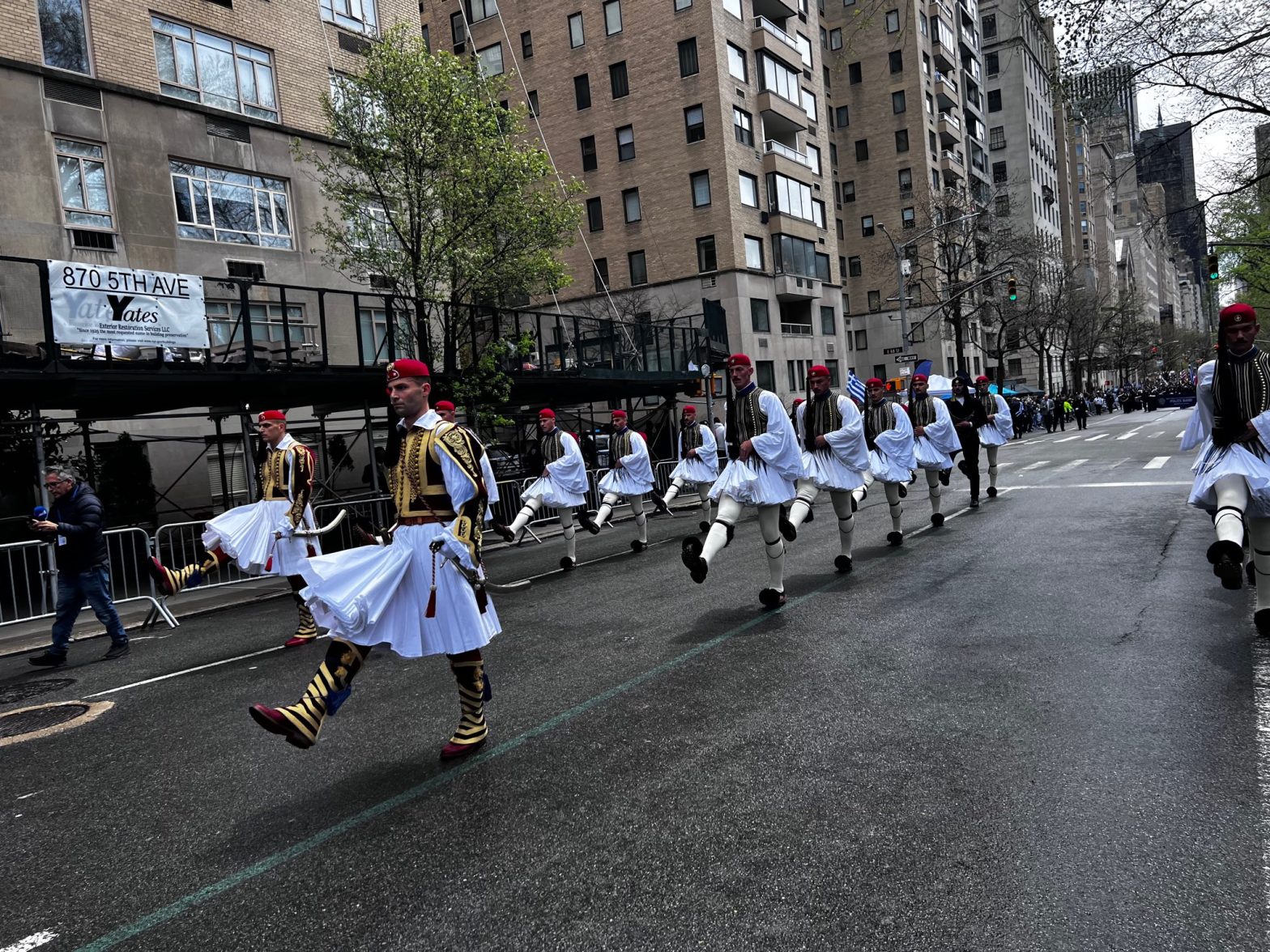General News
Meropi Kyriacou Honored as TNH Educator of the Year
NEW YORK – Meropi Kyriacou, the new Principal of The Cathedral School in Manhattan, was honored as The National Herald’s Educator of the Year.

NEW YORK – The world premiere of Upstander Bystander: From Camp to Camp took place on February 23 at The Kraine Theater in Manhattan. Directed by Marisa Stefatos, this dramatic new theatrical production dares to ask the difficult questions and is not to be missed. The audience was moved by the performance and many wiped tears from their eyes during the emotionally-charged moments so skillfully enacted by the four talented performers.
Spanning from the World War II to the present day, four characters in separate camps explore love, fate, free will, and human responsibility. Fear of otherness has run rampant throughout history and continues in our day and age. The question is: are we all so different? Upstander is about forging connections in an increasingly fragmented world to avoid the pitfalls of the past and to create peace in the present. Written by Laurence Bohec and directed and adapted by Stefatos with an international cast- Geraldine Dulex- appearing courtesy of Actors’ Equity Association, Sophie Max, Terence Schweizer, and Samantha Wendorf, Upstander Bystander takes the audience on an unforgettable, haunting journey.
The play is simply staged, allowing the actors, the words, and music to highlight the challenging themes. Stefatos spoke with The National Herald about the production, “It is very collaborative and is about the questioning process and the learning process and looking at all sides of a question or a certain topic, that’s what the theater is for us and we see it as a training ground for life and inquiry and a sacred space and that how the ancient Greeks viewed it as well. So it’as a combination, taking the aspects of the ancient Greek theater and the Brechtian theater, which breaks down the fourth wall convention and melding them together. And everything comes from love, wanting to manifest and create something beautiful where we can all have a voice no matter how small… really looking into things and reflecting.”
Five shows are scheduled for February 23-March 3, Stefatos told TNH, adding that they are “hoping to take it somewhere else, to Greece, to the Exile Museum, and we’re talking to various people about taking it to other places.” The themes of the play are universal and will undoubtedly translate well internationally.
“Everybody is passionate about the project, everybody involved is really invested in it,” Stefatos told TNH.
The music was especially powerful in the piece as performed by the actors and by Raffi Froundjian who arranged, composed and played the music for the guitar and the oud. The music represents the displaced refugee of today and yesterday, with the flute representing the voice of the German Nazi and soldier, the violin the plight of the Jewish survivor. The Serenade or “Standchen” by Schubert is especially moving since it was a piece performed in the camps and recalls the power of music and art to help people survive, but also that music was used as a tool to influence people and also demoralize them at times.
The play draws on history and current events in a powerful way that inspires conversation and dialogue. It is a potent reminder that difficult questions must be asked and the discussion must continue if we are to solve the ongoing crises in our world today.
NEW YORK – Meropi Kyriacou, the new Principal of The Cathedral School in Manhattan, was honored as The National Herald’s Educator of the Year.

NEW YORK – The New York Greek Independence Parade on Fifth Avenue, commemorating the 203rd anniversary of the Greek Revolution of 1821, was held in an atmosphere of emotion and pride on April 14.
NASHVILLE, TN – Olive oil can be used in a variety of ways beyond food, including for cosmetics and soaps, like the Korres Shower Gel that accidentally ended up in one family’s dinner.
Long the ruler of the world’s waves, Greek shipowners have been fending off tough competition from China, and now Japan, but still are first with 17 percent of the globe’s fleet in terms of Dead Weight Tonnage (DWT.
ATHENS — Strikes called by Greece’s largest labor union halted ferries and public transport services in Athens and elsewhere Wednesday.
ATHENS - Hellenic Post (ELTA) - the Greek postal service - was advised a year before a 2022 cyberattack that a check of its computer systems had found it was susceptible to hacks but didn’t have defenses in place to stop it.